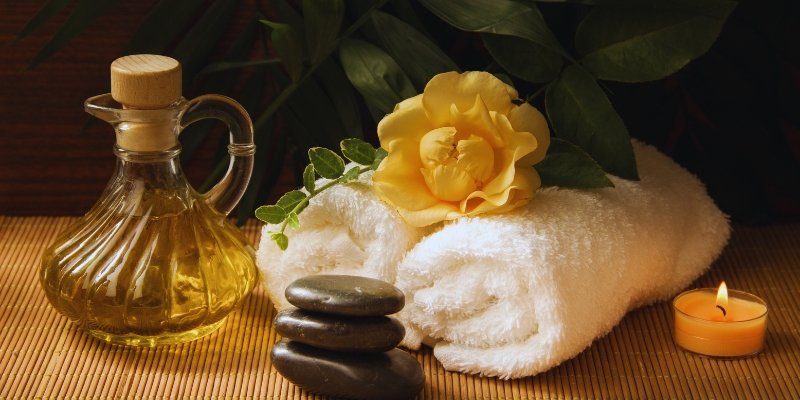Establishing a Massage Business in Singapore: A Guide for Aspiring Entrepreneurs

Singapore’s wellness industry is flourishing, with an increasing demand for relaxation and therapeutic services. As more individuals prioritize self-care and stress relief, establishing a massage business in Singapore presents a lucrative opportunity for aspiring entrepreneurs. This guide will explore the reasons to start a massage business, detailed steps for setting one up, potential challenges, and essential financial planning aspects to ensure your success in this vibrant sector.
Reasons to Start a Massage Business

Starting a massage business in Singapore offers numerous advantages. Firstly, the growing awareness of health and wellness among Singaporeans and expatriates has led to a surge in demand for massage services. Many people seek out massages not only for relaxation but also for therapeutic benefits, making this a promising market.
Secondly, Singapore’s diverse population, including both locals and expatriates, creates a broad customer base. This diversity allows entrepreneurs to cater to various preferences and cultural practices related to massage therapy, enhancing the appeal of your business.
Additionally, the government actively supports small businesses and entrepreneurship through various initiatives, including grants and funding programs. This supportive environment encourages new entrants to explore opportunities within the wellness industry.
Detailed Steps to Establish a Massage Business

Conduct Market Research: Begin by analyzing the local massage industry. Identify your target audience, assess competitors, and understand the specific needs and preferences of potential clients. This research will help you refine your business concept and tailor your services.
Create a Business Plan: A comprehensive business plan is crucial for outlining your vision, mission, and operational strategies. Include details about your target market, service offerings, marketing strategies, and financial projections. A well-structured plan will serve as a roadmap for your massage business.
Choose Your Niche: The massage industry encompasses various niches, including traditional massage, therapeutic massage, sports massage, and spa services. Determine which area aligns with your expertise and market demand. Specializing in a niche can help differentiate your business from competitors.
Register Your Business: Register your massage business with the Accounting and Corporate Regulatory Authority (ACRA) in Singapore. Choose an appropriate business structure, such as a sole proprietorship or limited liability company, and complete the necessary registration requirements.
Obtain Necessary Licenses and Permits: Depending on the nature of your massage business, you may need specific licenses or permits. Ensure compliance with local regulations, including health and safety standards, to operate legally. Consider seeking advice from a corporate service provider to navigate these requirements effectively.
Find a Suitable Location: Location is critical for a massage business. Choose a site that is easily accessible and visible to potential clients. Consider areas with high foot traffic, such as shopping districts or residential neighborhoods, to maximize visibility and attract customers.
Hire Qualified Staff: If you plan to offer massage services, hiring qualified and certified therapists is essential. Ensure that your staff possesses the necessary skills and qualifications to provide high-quality services. Consider offering ongoing training to maintain service standards.
Develop Your Service Offerings: Clearly define the services you will provide as part of your massage business. This could include various types of massages, wellness packages, and add-on services such as aromatherapy or facial treatments. Ensure that your offerings align with market demand and your expertise.
Create a Marketing Strategy: A robust marketing strategy is vital for attracting clients to your massage business. Utilize online platforms, social media, and local advertising to promote your services. Highlight your unique selling points, such as specialized treatments, customer testimonials, and introductory offers.
Launch Your Business: Once all preparations are complete, officially launch your massage business. Consider hosting an opening event or offering promotional discounts to attract initial clients. Engage with customers through excellent service to build lasting relationships.
Challenges and Considerations for Both Local and Foreign Entrepreneurs

While establishing a massage business in Singapore presents numerous opportunities, it also comes with challenges. For local entrepreneurs, navigating a competitive market can be daunting, with many established spas and wellness centers vying for clients. Differentiating your business through specialized services and a strong value proposition is essential to stand out.
Foreign entrepreneurs may face additional hurdles, such as understanding local regulations and cultural expectations. Familiarizing yourself with Singapore’s wellness landscape and the preferences of clients is crucial for effective operation.
Moreover, the massage industry can be influenced by economic conditions and changing consumer trends. Building a diverse client base and offering a range of services can help mitigate these risks.
Financial Planning Aspects

Effective financial planning is critical for establishing a successful massage business. Start by estimating your initial investment costs, which may include registration fees, equipment, marketing expenses, and rental costs. Create a detailed budget to manage ongoing costs, such as salaries, utilities, and supplies.
Consider exploring funding options available for startups, such as government grants, bank loans, or private investors. Having a solid financial strategy will help maintain cash flow and ensure the sustainability of your massage business.
Additionally, keep meticulous records of your financial performance. Monitor key performance indicators, such as revenue, expenses, and client satisfaction, to assess your business’s health and make informed decisions.
Conclusion
Establishing a massage business in Singapore offers aspiring entrepreneurs a unique opportunity to tap into a thriving wellness industry while contributing to the health and well-being of the community. With careful planning, a clear understanding of the market, and effective execution, you can create a successful massage business that provides value to clients.
If you are ready to embark on your journey in the wellness sector, reach out to Company Formation Specialist. Our team of experts is here to guide you through the process of setting up your massage business, ensuring you have the support you need to succeed in Singapore’s competitive landscape. Start your journey today and unlock the potential of your massage business!
Frequently Asked Questions
1. What are the main steps to start a massage business in Singapore?
Answer: The main steps include conducting market research, creating a business plan, choosing a niche, registering the business, obtaining necessary licenses, selecting a location, hiring qualified staff, defining service offerings, and launching with a marketing strategy.
2. What licenses are required to operate a massage business in Singapore?
Answer: Massage businesses must comply with specific licensing requirements, including health and safety standards. Some may need a Massage Establishment License, depending on the services provided.
3. How can I find a suitable location for my massage business in Singapore?
Answer: Look for accessible locations with high foot traffic, such as shopping centers or residential neighborhoods, to ensure visibility and convenience for potential clients.
4. What are the common challenges of starting a massage business in Singapore?
Answer: Challenges include intense competition, meeting regulatory requirements, cultural sensitivity, and potential economic fluctuations that could impact customer spending.
5. Do I need to hire certified massage therapists?
Answer: Yes, hiring qualified and certified massage therapists is essential to ensure high-quality service, meet regulatory standards, and build customer trust.
6. How much does it cost to start a massage business in Singapore?
Answer: Costs vary depending on location, size, services, and staff. Initial expenses may include registration fees, rent, equipment, marketing, and salaries, with ongoing costs for maintenance and operations.
7. What niches are popular in Singapore’s massage industry?
Answer: Popular niches include traditional massage, therapeutic and sports massage, and luxury spa services. Choosing a specific niche can help differentiate your business.
8. Are there grants or financial assistance available for massage business startups?
Answer: Yes, several grants and funding programs are available for small businesses in Singapore. Research options like government grants, bank loans, or private investors.
9. How can I market my massage business in Singapore effectively?
Answer: Use a mix of social media, local advertising, online directories, and partnerships. Emphasize unique offerings, such as specialized treatments, and encourage client testimonials.
10. What is the demand for massage services in Singapore?
Answer: Demand is growing due to increased awareness of wellness and stress relief. Both locals and expatriates seek massage services for relaxation and therapeutic benefits.

